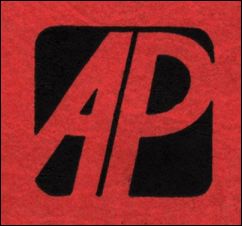
Associated Press logo, 1942
A German historian uncovered how the Associated Press formally cooperated with Hitler’s Nazi regime during World War II. The Guardian was the first to pick up on a German academic study by historian Harriet Scharnberg. Among her explosive findings:
a. While other Western news outlets couldn’t report from Germany, “AP was only able retain its access by entering into a mutually beneficial two-way cooperation with the Nazi regime.”
b. AP “ceded control of its output by signing up to the so-called Schriftleitergesetz (editor’s law), promising not to publish any material “calculated to weaken the strength of the Reich abroad or at home”. This law required AP “to hire reporters who also worked for the Nazi party’s propaganda division.
c. AP supplied American newspapers with material “directly produced and selected by the Nazi propaganda ministry.”
d. The Nazis were allowed to use AP’s photo archives to produce anti-Semitic propaganda.
The Guardian writes:
Coming just before Associated Press’s 170th anniversary in May, the newly discovered information raises not just difficult questions about the role AP played in allowing Nazi Germany to conceal its true face during Hitler’s first years in power, but also about the agency’s relationship with contemporary totalitarian regimes.
While the AP deal enabled the west to peek into a repressive society that may otherwise have been entirely hidden from view – for which Berlin correspondent Louis P Lochner won a Pulitzer in 1939 – the arrangement also enabled the Nazis to cover up some of its crimes. Scharnberg, a historian at Halle’s Martin Luther University, argued that AP’s cooperation with the Hitler regime allowed the Nazis to “portray a war of extermination as a conventional war”. . .
The new findings may only have been of interest to company historians, were it not for the fact that AP’s relationship with totalitarian regimes has once again come under scrutiny. Since January 2012, when AP became the first western news agency to open a bureau in North Korea, questions have repeatedly been raised about the neutrality of its Pyongyang bureau’s output.
The phenomenon of compromising for the sake of access isn’t restricted to AP. After the overthrow of Saddam Hussein in 2003, CNN executive Eason Jordan penned an eye-opening mea culpa, The News We Kept to Ourselves.
UPDATE
The AP has issued a statement in response to the story claiming that it focuses on a subsidiary photo agency of the AP that operated in Berlin before and during World War II:
AP rejects the suggestion that it collaborated with the Nazi regime at any time. Rather, the AP was subjected to pressure from the Nazi regime from the period of Hitler’s coming to power in 1932 until the AP’s expulsion from Germany in 1941. AP staff resisted the pressure while doing its best to gather accurate, vital and objective news for the world in a dark and dangerous time.
AP news reporting in the 1930s helped to warn the world of the Nazi menace. AP’s Berlin bureau chief, Louis P. Lochner, won the 1939 Pulitzer Prize for his dispatches from Berlin about the Nazi regime. Earlier, Lochner also resisted anti-Semitic pressure to fire AP’s Jewish employees and when that failed he arranged for them to become employed by AP outside of Germany, likely saving their lives.
You can read the full statement here.









